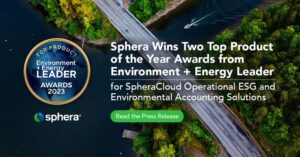
As the importance and prevalence of environmental, social and governance (ESG) has grown over the years, so has the number of ESG reporting rules and frameworks. The EU’s CSRD, the ISSB and India’s BRSR are examples. This proliferation presents big challenges for companies that operate in more than one jurisdiction, as so many large enterprises do. Yet, where there are challenges, there are also opportunities.
There are ongoing efforts to create standardized ESG reporting metrics, and while these efforts are a step in the right direction, companies are driven by the immediate need to comply with the regional, national and state regulations that apply to them. The list below captures only a few of them:
- Companies operating in the EU—including thousands of non-EU businesses—must comply with the Corporate Sustainability Reporting Directive (CSRD), and financial market participants have disclosure responsibilities under the EU’s Sustainable Finance Disclosure Regulation (SFDR).
- The top 1,000 listed companies in India have to report under the Business Responsibility and Sustainability Report (BRSR).
- Large, public companies in the U.S. will have to comply with the Securities and Exchange Commission’s (SEC) upcoming climate-related disclosure rules.
- Public and private businesses with at least $1 billion in revenue that are operating in California will have to disclose their Scope 1, Scope 2 and Scope 3 value chain emissions under California’s Climate Corporate Data Accountability Act (SB 253), pending approval by Governor Gavin Newsom.
Operationalizing ESG can help with this effort. When ESG is operationalized across an organization, everyday activities at the product, operational and enterprise levels feed real-time ESG metrics, breaking down information silos and providing the transparency that regulators and other stakeholders demand.
Sphera is committed to helping customers achieve greater transparency and operationalize ESG throughout their organizations by providing best-in-class ESG and sustainability performance measurement tools. In fact, we recently won a Top Product of the Year for SpheraCloud Operational ESG in the 2023 Environment + Energy Leader Awards. The SpheraCloud SaaS platform is an end-to-end ESG and risk management solution on a single, scalable system.
By providing metrics from environment, health, safety and sustainability (EHS&S); operational risk management (ORM); supply chain risk management (SCRM); and product stewardship, the platform provides the information businesses need to develop robust ESG and net-zero strategies. It also generates the data needed for transparent, measurable and auditable ESG and sustainability reports and effective compliance efforts.
The solution helps identify gaps between set targets and actual performance, in addition to assigning actions, continuously monitoring and improving performance across business units and tracking progress toward intended ESG outcomes. And, now more than ever, companies are identifying the reduction of greenhouse gas (GHG) emissions as one of their most important ESG goals.
The disclosure regulations listed above, and many others like them, require businesses to track and report their GHG emissions. For this reason, environmental accounting solutions have become necessary additions to a company’s reporting toolbox. Our SpheraCloud Environmental Accounting solution offers data collection, management and calculation functionalities to help complex businesses establish an auditable record of their air/GHG emissions, as well as water and waste management. This product was also recognized by Environment + Energy Leader as a 2023 Product of the Year.
Additionally, Sphera was recently recognized by independent analyst firm Verdantix as a leader in the ESG reporting and data management software market in its inaugural “Green Quadrant: ESG Reporting and Data Management Software 2023” report. Sphera obtained one of the highest scores for vision and strategy, a metric that assesses ESG reporting and data management and how vendors address and achieve target market opportunities and meet target customer needs.
Sphera also received the highest score for our tools that help companies comply with regulations such as the EU Taxonomy, the CSRD and the German Supply Chain Law, to name a few. We’re proud to be recognized by Verdantix as a leader in ESG reporting and data management.
The Business Intelligence Group recognized Sphera as well, awarding us a Sustainability Leadership Award for the second year in a row. Our groundbreaking LCA Automation solution, which enables businesses to calculate the environmental footprint of entire product portfolios, has helped to position Sphera as a sustainability leader, particularly with respect to Scope 3 reporting.
We expect more regulations and ESG disclosure frameworks in the coming months and years, which means that transparent, measurable and auditable reporting is quickly becoming a business imperative. With software solutions that provide data and insights across a company’s operations, an organization can gain a more holistic view of ESG performance that helps inform business decisions and mitigate risk.
Companies that adapt now will be better prepared to meet compliance challenges in the future. And when companies operationalize ESG instead of treating it as a compliance exercise, it leads to greater resilience, better operational performance and new, innovative products and services. By committing to measuring and tracking ESG, we can make real progress in creating a safer, more sustainable and productive world.
–Paul
Learn more about Paul Marushka.
How Technology Can Help You Achieve Your Net-Zero Commitments


